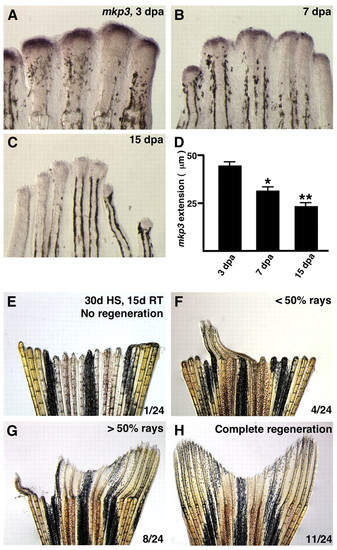
Positional memory is maintained in the absence of Fgf signaling. (A-C) Expression of mkp3 assessed by in situ hybridization in 3, 7 and 15 dpa single-amputated fins (33°C). The intensity of mkp3 expression signal wanes as regeneration progresses. (D) The PD length of the mkp3 signal is also reduced as regeneration progresses (n=10; *P<0.001, significantly different from 3 dpa, t-test; **P<0.005, significantly different from 3 and 7 dpa, t-test). (E-H) To test whether a long-term block of Fgf signaling could alter positional memory, 24 hsp70:dn-fgfr1 fins were amputated and exposed to 30 days of heat induction, followed by 15 days of room temperature treatment. Regeneration was fully blocked during the 30-day period. One of 24 animals showed no recovery after 15 days of restored Fgf signaling (E), while a small number (4/24) had regenerative blocks affecting more than half of the rays (F). The majority of regenerates displayed normal regeneration of more than half of rays (8/24, G) or all rays (11/24, H).
|

